|
Books Should Be Free Loyal Books Free Public Domain Audiobooks & eBook Downloads |
|
|
Books Should Be Free Loyal Books Free Public Domain Audiobooks & eBook Downloads |
|
Biographies |
|---|
|
Book type:
Sort by:
View by:
|
By: Eugene Field (1850-1895) | |
|---|---|
 The Love Affairs of a Bibliomaniac
The Love Affairs of a Bibliomaniac
Do you love books? No, I mean REALLY love books? These series of sketches on the delights, adventures, and misadventures connected with bibliomania (bibliomania is characterized by the collecting of books which have no use to the collector nor any great intrinsic value to a genuine book collector. The purchase of multiple copies of the same book and edition and the accumulation of books beyond possible capacity of use or enjoyment are frequent symptoms of bibliomania.). The author wholeheartedly enjoyed this pursuit all his life and his descriptions are delightful to read... | |
By: Rabindranath Tagore (1861-1941) | |
|---|---|
 My Reminiscences
My Reminiscences
These Reminiscences were written and published by the Author in his fiftieth year, shortly before he started on a trip to Europe and America for his failing health in 1912. It was in the course of this trip that he wrote for the first time in the English language for publication. (from preface) | |
By: Charles Morris (1833-1922) | |
|---|---|
 The San Francisco Calamity by Earthquake and Fire
The San Francisco Calamity by Earthquake and Fire
The first half of this book describes the devastating earthquake that hit San Francisco in 1906, and the subsequent destruction caused by fire. Various eyewitnesses and victims give their account on the tragedy. In the second half, a number of different other earthquakes and volcanic eruptions are retold, like the eruption of the Vesuvius that destroyed Pompeij or the explosion of the Krakatoa, together with scientific explanations for the causes of earthquakes and the eruption of volcanos. | |
By: Henry Van Dyke (1852-1933) | |
|---|---|
 Out-of-Doors in the Holy Land Impressions of Travel in Body and Spirit
Out-of-Doors in the Holy Land Impressions of Travel in Body and Spirit
| |
By: L. A. Abbott (1813-??) | |
|---|---|
 Seven Wives and Seven Prisons
Seven Wives and Seven Prisons
This work the author claims is indeed a true story of how he happened to be married seven times to seven different women and the rollicking, hilarious events that led (or stumbled) to the marriages and the ah–disassembling/failing/failures of each said marriage which happened oftentimes to land him in prison. The summarist finds the work a very tongue-in-cheek diatribe/lament/account of his obsessive zeal in ‘marrying the right one’, but is also the mirthful chronicle of said author’s very unconventional adventures. | |
By: Mrs. Cecil Hall | |
|---|---|
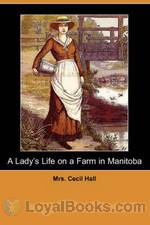 A Lady's Life on a Farm in Manitoba
A Lady's Life on a Farm in Manitoba
The nineteenth century was marked by intense colonization by countries like Britain, France, Portugal, Spain and the Netherlands. Initially, the pioneering efforts were made by men who battled unfamiliar terrain to create territories that they marked out as their own, while their wives, mothers, sisters and daughters kept the home and hearth in their native land. However, with travel becoming more common and family life assuming more importance, the women too began to travel to the four corners of the earth... | |
By: Thomas Bulfinch | |
|---|---|
 The Legends of Charlemagne
The Legends of Charlemagne
Bulfinch (July 15, 1796 - May 27, 1867) explains the his work is "an attempt tell the stories of mythology in such a manner as to make them a source of amusement. We have endeavored to tell them correctly, according to the ancient authorities, so that when the reader finds them referred to he may not be at a loss to recognize the reference. Thus we hope to teach mythology not as a study, but as a relaxation from study; to give our work the charm of a story-book, yet by means of it to impart a knowledge of an important branch of education... | |
By: Theodore Roosevelt | |
|---|---|
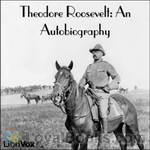 Theodore Roosevelt: An Autobiography
Theodore Roosevelt: An Autobiography
In his vital, illustrative and dynamic autobiography, Theodore Roosevelt let us into the life that formed one of the greatest and outspoken presidents in American history. Not only are we privy to the formation of his political ideals, but also to his love of the frontier and the great outdoors. | |
By: Theodore Dreiser (1871-1945) | |
|---|---|
 Twelve Men
Twelve Men
| |
By: Nat Love (1854-1921) | |
|---|---|
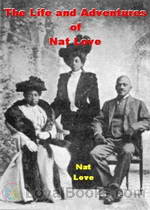 The Life and Adventures of Nat Love, Also Known As Deadwood Dick
The Life and Adventures of Nat Love, Also Known As Deadwood Dick
Nat Love was born a slave, emancipated into abject poverty, grew up riding the range as a cowboy and spent his maturity riding the rails as a Pullman Porter. For me, the most amazing thing about him is that despite the circumstances of his life, which included being owned like a farm animal solely because of the color of his skin and spending later decades living and working as an equal with white coworkers, he was an unrepentant racist! Convinced that the only good Indian was a dead one, and that... | |
By: Frank Lewis Dyer and Thomas Commerford Martin | |
|---|---|
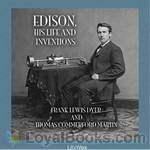 Edison, His Life and Inventions
Edison, His Life and Inventions
One of the most prolific and multi-talented geniuses the world has ever seen, Thomas Alva Edison's life is indeed an inspiration for each new generation. Today we live in a world that would not have been possible if not for several of his important inventions – the electric light bulb, the motion picture camera, electric power distribution, the phonograph, and a host of other things that we take for granted today. In fact, he still holds the world record for the maximum number of patents, numbering 1093 in all! Edison – His Life and Inventions by Frank Lewis Dyer and Thomas Commerford Martin, published in 1910 was in fact a biography commissioned by Edison himself... | |
By: Olaudah Equiano (1745-1797) | |
|---|---|
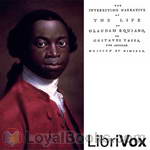 The Interesting Narrative of the Life of Olaudah Equiano, Or Gustavus Vassa, The African
The Interesting Narrative of the Life of Olaudah Equiano, Or Gustavus Vassa, The African
The Interesting Narrative of the Life of Olaudah Equiano, written in 1789, is the autobiography of Olaudah Equiano. It discusses his time spent in slavery, serving primarily on galleys, documents his attempts at becoming an independent man through his study of the Bible, and his eventual success in gaining his own freedom and in business thereafter. The book contains an interesting discussion of slavery in West Africa and illustrates how the experience differs from the dehumanising slavery of the Americas... | |
By: Henry Fielding (1707-1754) | |
|---|---|
 Journal of a Voyage to Lisbon
Journal of a Voyage to Lisbon
Sailing voyage from England to Portugal in the mid Eighteenth Century, by one of the premier humorists, satirists, novelists and playwrights of his age. It was to be his last work, as his failing health proved unable to persevere much longer after the voyage. | |
By: Thomas de Quincey (1785-1859) | |
|---|---|
 Confessions of an English Opium-Eater
Confessions of an English Opium-Eater
“Thou hast the keys of Paradise, O just, subtle, and mighty Opium!” Though apparently presenting the reader with a collage of poignant memories, temporal digressions and random anecdotes, the Confessions is a work of immense sophistication and certainly one of the most impressive and influential of all autobiographies. The work is of great appeal to the contemporary reader, displaying a nervous (postmodern?) self-awareness, a spiralling obsession with the enigmas of its own composition and significance... | |
By: Catharine Parr Traill (1802-1899) | |
|---|---|
 The Backwoods of Canada
The Backwoods of Canada
The writer is as earnest in recommending ladies who belong to the higher class of settlers to cultivate all the mental resources of a superior education, as she is to induce them to discard all irrational and artificial wants and mere useless pursuits. She would willingly direct their attention to the natural history and botany of this new country, in which they will find a never-failing source of amusement and instruction, at once enlightening and elevating the mind, and serving to fill up the void left by the absence of those lighter feminine accomplishments, the practice of which are necessarily superseded by imperative domestic duties... | |
By: James Boswell (1740-1795) | |
|---|---|
 The Life of Samuel Johnson
The Life of Samuel Johnson
Boswell’s Life of Samuel Johnson is widely considered to be the greatest English-language biography ever written. It was revolutionary in its efforts to represent Johnson as he was, celebrating his flaws as well as his genius, and in Boswell’s decision to represent Johnson primarily by quoting his writings and relating personal anecdotes rather than relying on matters of public record. From the time of its publication till now, The Life of Johnson has been one of the most popular and influential books ever written. | |
By: William Dean Howells (1837-1920) | |
|---|---|
 My Mark Twain
My Mark Twain
William Dean Howells (1837-1920) became fast friends with Mark Twain from the moment in 1869 when Twain strode into the office of The Atlantic Monthly in Boston to thank Howells, then its assistant editor, for his favorable review of Innocents Abroad. When Howells became editor a few years later, The Atlantic Monthly began serializing many of Twain’s works, among them his non-fiction masterpiece, Life on the Mississippi. In My Mark Twain, Howells pens a literary memoir that includes such fascinating scenes as their meetings with former president Ulysses Grant who was then writing the classic autobiography that Twain would underwrite in the largest publishing deal until that time... | |
By: Friedrich Nietzsche (1844-1900) | |
|---|---|
 Case of Wagner / Nietzsche Contra Wagner / Selected Aphorisms
Case of Wagner / Nietzsche Contra Wagner / Selected Aphorisms
A collection of three of Nietzsche's writings concerning the music of Wagner. In particular, he relates Wagner's music as degenerate, unrefined and unintelligent and relates it to a gradually degenerating German culture and society. The translator provides a detailed introduction. | |
By: Giacomo Casanova (1725-1798) | |
|---|---|
 The Memoirs of Jacques Casanova
The Memoirs of Jacques Casanova
This is the first of five volumes. – Giacomo Casanova (1725 in Venice – 1798 in Dux, Bohemia, now Duchcov, Czech Republic) was a famous Venetian adventurer, writer, and womanizer. He used charm, guile, threats, intimidation, and aggression, when necessary, to conquer women, sometimes leaving behind children or debt. In his autobiography Histoire de ma vie (Story of My Life), regarded as one of the most authentic sources of the customs and norms of European social life during the 18th century, he mentions 122 women with whom he had sex... | |
 Memoirs of Casanova — Volume 01: Childhood
Memoirs of Casanova — Volume 01: Childhood
| |
By: Peter Abelard (1079-1142) | |
|---|---|
 The Story of My Misfortunes
The Story of My Misfortunes
Autobiographies from remote historical periods can be especially fascinating. Modes of self-presentation vary greatly across the centuries, as of course does the very concept of Self. Peter Abelard, the medieval philosopher and composer, here gives a concise but vivid survey of his notoriously calamitous life. The work is couched in the form of a letter to an afflicted friend. Abelard’s abrasively competitive, often arrogant personality emerges at once in the brief Foreword, where he informs his correspondent: “(I)n comparing your sorrows with mine, you may discover that yours are in truth nought.. and so shall you come to bear them the more easily.” | |
By: Princess Der Ling | |
|---|---|
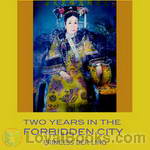 Two Years in the Forbidden City
Two Years in the Forbidden City
THE author of the following narrative has peculiar qualifications for her task. She is a daughter of Lord Yu Keng, a member of the Manchu White Banner Corps, and one of the most advanced and progressive Chinese officials of his generation. she became First Lady-in-Waiting to the Empress Dowager, and while serving at the Court in that capacity she received the impressions which provide the subject-matter of this book. Her opportunity to observe and estimate the characteristics of the remarkable woman who ruled China for so long was unique, and her narrative throws a new light on one of the most extraordinary personalities of modern times... | |
By: Thomas Moore (1779-1852) | |
|---|---|
 Life of Lord Byron, Vol. 1 With His Letters and Journals
Life of Lord Byron, Vol. 1 With His Letters and Journals
| |
 Memoirs of the Life of the Rt. Hon. Richard Brinsley Sheridan — Volume 01
Memoirs of the Life of the Rt. Hon. Richard Brinsley Sheridan — Volume 01
| |
By: Gaius Suetonius Tranquillus (c75 - c160 AD) | |
|---|---|
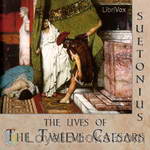 The Lives of the Twelve Caesars
The Lives of the Twelve Caesars
The Twelve Caesars is a set of twelve biographies of Julius Caesar and the first 11 emperors of the Roman Empire. The work was written in 121 during the reign of the emperor Hadrian, while Suetonius was Hadrian’s personal secretary. On the Life of the Caesars concentrates on the acts and personalities of the Julio-Claudians and their immediate successors. Together with Tacitus’ Annals, this work is a major source for the historical details in Robert Graves’ novels “I Claudius” and “Claudius the God”. | |
By: Thomas Carlyle | |
|---|---|
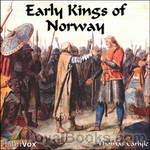 Early Kings of Norway
Early Kings of Norway
“The Icelanders, in their long winter, had a great habit of writing; and were, and still are, excellent in penmanship. It is to this fact, that any little history there is of the Norse Kings and their old tragedies, crimes and heroisms, is almost all due. The Icelanders, it seems, not only made beautiful letters on their paper or parchment, but were laudably observant and desirous of accuracy; and have left us such a collection of narratives (Sagas, literally “Says”) as, for quantity and quality, is unexampled among rude nations... | |
 Life of John Sterling
Life of John Sterling
| |
 The Life of Friedrich Schiller Comprehending an Examination of His Works
The Life of Friedrich Schiller Comprehending an Examination of His Works
| |
By: Leander Stillwell (1843-1934) | |
|---|---|
 The Story of a Common Soldier of Army Life in the Civil War, 1861-1865
The Story of a Common Soldier of Army Life in the Civil War, 1861-1865
Leander Stillwell was an 18-year-old Illinois farm boy, living with his family in a log cabin, when the U.S. Civil War broke out. Stillwell felt a duty “to help save the Nation;” but, as with many other young men, his Patriotism was tinged with bravura: “the idea of staying at home and turning over senseless clods on the farm with the cannon thundering so close at hand . . . was simply intolerable.” Stillwell volunteered for the 61st Illinois Infantry in January 1861. His youthful enthusiasm for the soldier’s life was soon tempered at Shiloh, where he first “saw a gun fired in anger,” and “saw a man die a violent death... | |
By: Thomas Wentworth Higginson | |
|---|---|
 Army Life in a Black Regiment
Army Life in a Black Regiment
These pages record some of the adventures of the First South Carolina Volunteers, the first slave regiment mustered into the service of the United States during the late civil war. It was, indeed, the first colored regiment of any kind so mustered, except a portion of the troops raised by Major-General Butler at New Orleans. These scarcely belonged to the same class, however, being recruited from the free colored population of that city, a comparatively self-reliant and educated race. (From the text) | |
By: Booker T. Washington (1856-1915) | |
|---|---|
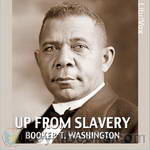 Up From Slavery
Up From Slavery
Up From Slavery is the 1901 autobiography of Booker T. Washington detailing his slow and steady rise from a slave child during the Civil War, to the difficulties and obstacles he overcame to get an education at the new Hampton University, to his work establishing vocational schools—most notably the Tuskegee Institute in Alabama—to help black people and other disadvantaged minorities learn useful, marketable skills and work to pull themselves, as a race, up by the bootstraps. He reflects on the generosity of both teachers and philanthropists who helped in educating blacks and native Americans... | |
By: James Edward Austen-Leigh (1798-1874) | |
|---|---|
 Memoir of Jane Austen
Memoir of Jane Austen
“The Memoir of my Aunt, Jane Austen, has been received with more favour than I had ventured to expect. The notices taken of it in the periodical press, as well as letters addressed to me by many with whom I am not personally acquainted, show that an unabated interest is still taken in every particular that can be told about her. I am thus encouraged not only to offer a Second Edition of the Memoir, but also to enlarge it with some additional matter which I might have scrupled to intrude on the public if they had not thus seemed to call for it... | |